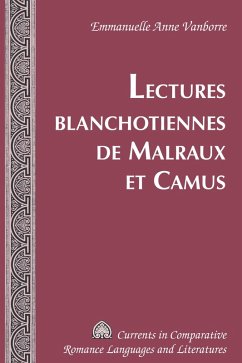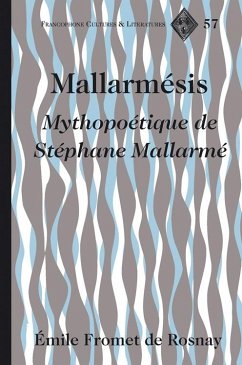
Search for Self in Other in Cicero, Ovid, Rousseau, Diderot and Sartre (eBook, PDF)
Versandkostenfrei!
Sofort per Download lieferbar
Statt: 88,75 €**
65,95 €
inkl. MwSt.
**Preis der gedruckten Ausgabe (Gebundenes Buch)
Alle Infos zum eBook verschenkenWeitere Ausgaben:

PAYBACK Punkte
33 °P sammeln!
Search for Self in Other in Cicero, Ovid, Rousseau, Diderot and Sartre examines how these five theorists recognized that searching for self in an idealized other can lead to a variety of perversions. Cicero warned against seeking friends whom we regard as being everything that we are not: he advised to first be a good person and then to seek other. Ovid showed that Narcissus, who had no close friends to reinforce his identity, was oblivious to his own assets and tried to live vicariously through other. Rousseau explained why modern man, while seated in a theater, feels compassion and is transp...
Search for Self in Other in Cicero, Ovid, Rousseau, Diderot and Sartre examines how these five theorists recognized that searching for self in an idealized other can lead to a variety of perversions. Cicero warned against seeking friends whom we regard as being everything that we are not: he advised to first be a good person and then to seek other. Ovid showed that Narcissus, who had no close friends to reinforce his identity, was oblivious to his own assets and tried to live vicariously through other. Rousseau explained why modern man, while seated in a theater, feels compassion and is transported by pity, anxiety and fear for the welfare of fictional characters as if it were his own. Diderot showed how the absence of self can be exploited by the powerful to reshape the minds of the weak. He proves that given the right environment and length of time, any one of us, like the victims in The Nun, could just as easily have his life ruined. Sartre reminds us that it is impossible to be-in-exterior. We see ourselves according to the way that others perceive us based on conditioning and prejudices. Sartre untangles the snarled web of misperception of self that arises from «the look» of the other.
This book addresses man's growing understanding of the death of self in the mirror of other across the corridors of time - from Narcissus' ancient pool, to Cicero's Roman forum, to Rousseau's Parisian theater, to Diderot's convent in The Nun, to Sartre's twentieth-century hell.
This book addresses man's growing understanding of the death of self in the mirror of other across the corridors of time - from Narcissus' ancient pool, to Cicero's Roman forum, to Rousseau's Parisian theater, to Diderot's convent in The Nun, to Sartre's twentieth-century hell.
Dieser Download kann aus rechtlichen Gründen nur mit Rechnungsadresse in A, B, BG, CY, CZ, D, DK, EW, E, FIN, F, GR, HR, H, IRL, I, LT, L, LR, M, NL, PL, P, R, S, SLO, SK ausgeliefert werden.













